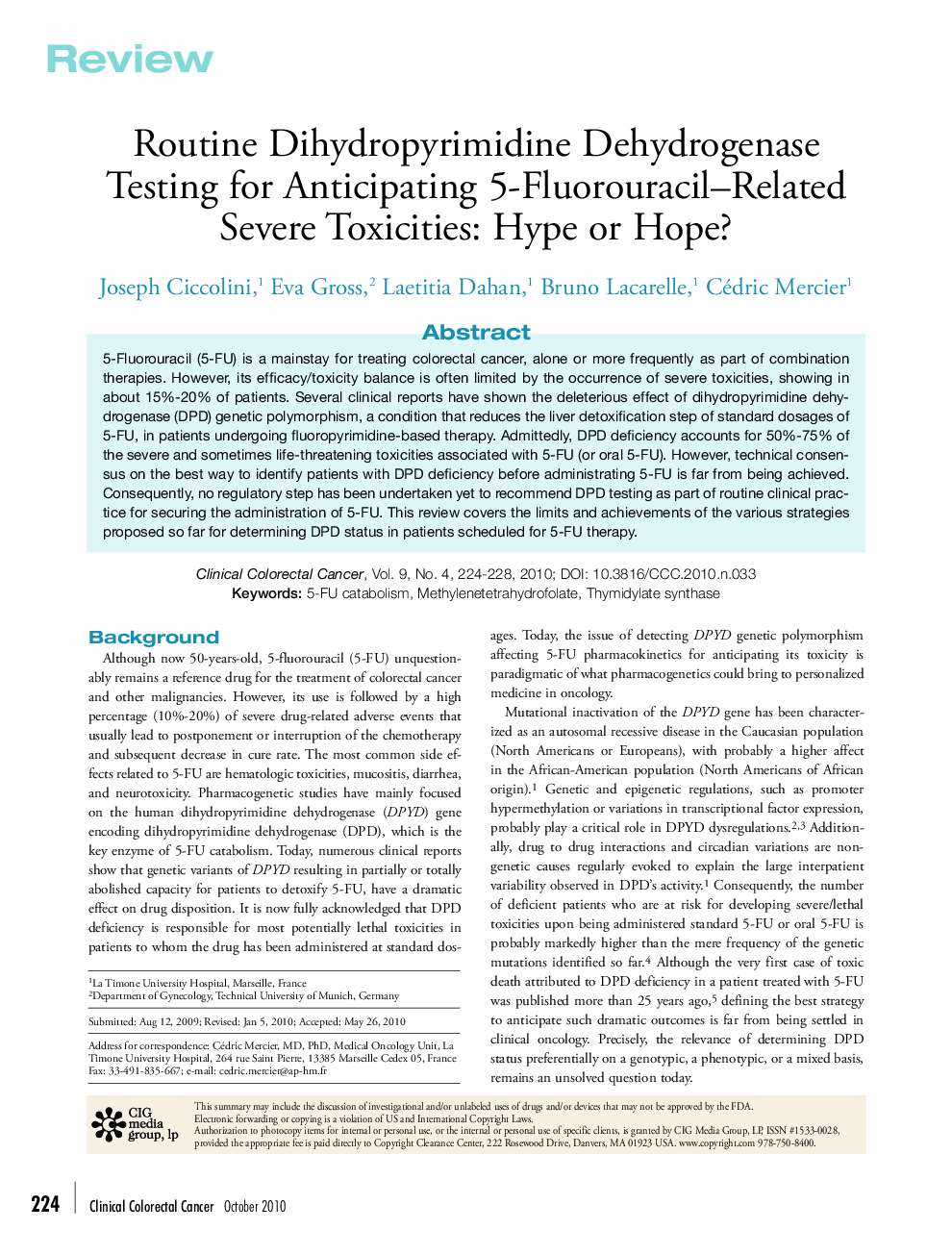| کد مقاله | کد نشریه | سال انتشار | مقاله انگلیسی | نسخه تمام متن |
|---|---|---|---|---|
| 2751580 | 1149476 | 2010 | 5 صفحه PDF | دانلود رایگان |

5-Fluorouracil (5-FU) is a mainstay for treating colorectal cancer, alone or more frequently as part of combination therapies. However, its efficacy/toxicity balance is often limited by the occurrence of severe toxicities, showing in about 15%-20% of patients. Several clinical reports have shown the deleterious effect of dihydropyrimidine dehydrogenase (DPD) genetic polymorphism, a condition that reduces the liver detoxification step of standard dosages of 5-FU, in patients undergoing fluoropyrimidine-based therapy. Admittedly, DPD deficiency accounts for 50%-75% of the severe and sometimes life-threatening toxicities associated with 5-FU (or oral 5-FU). However, technical consensus on the best way to identify patients with DPD deficiency before administrating 5-FU is far from being achieved. Consequently, no regulatory step has been undertaken yet to recommend DPD testing as part of routine clinical practice for securing the administration of 5-FU. This review covers the limits and achievements of the various strategies proposed so far for determining DPD status in patients scheduled for 5-FU therapy.
Journal: Clinical Colorectal Cancer - Volume 9, Issue 4, October 2010, Pages 224–228